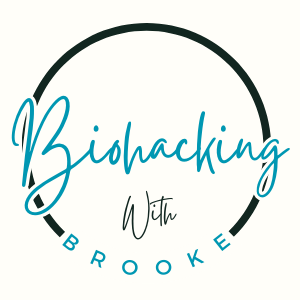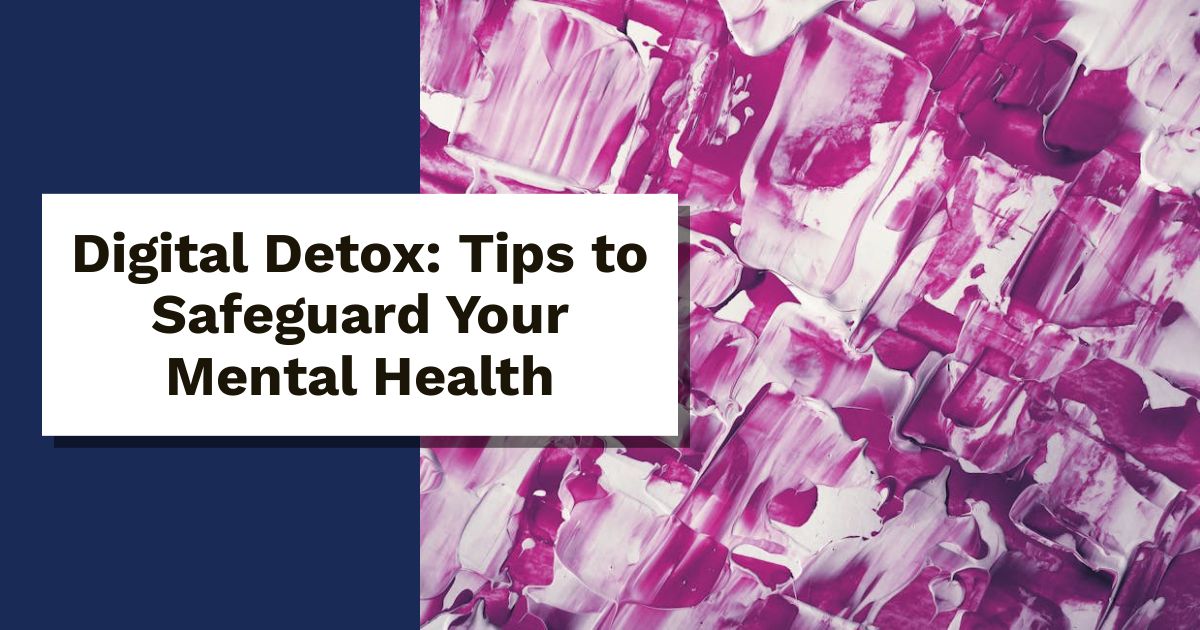Feeling overwhelmed by constant notifications and screen time? You’re not alone. Many people struggle with the effects of digital overload on their mental health.
A digital detox is a break from screens and online distractions. It’s a chance to recharge and reconnect with yourself. This post will share simple yet effective tips to help you unplug and improve your well-being.
Discover how stepping back from technology can enhance your focus, creativity, and mood. Learn why prioritizing your mental health in a tech-driven world is essential. Ready to take control? Let’s jump into the world of digital detox!
Understanding Digital Detox
Taking a break from technology isn’t just about putting your phone down; it’s about reconnecting with your inner self. A digital detox is a deliberate pause from digital devices to help refresh your mind and spirit. Let’s explore what this means and why it’s important for your mental well-being.
What is Digital Detox?
Simply put, a digital detox is a period when you intentionally limit or eliminate your use of digital devices. This includes smartphones, computers, and social media platforms. It’s not just a whim; it’s a mindful choice to step back from the constant barrage of notifications and online distractions. This time away helps you focus on living in the moment, fostering real-world interactions, and prioritizing personal interests. For a deeper understanding, check out WebMD’s article on digital detox.
Why We Need It
Why should you consider a digital detox? With the world at our fingertips, constant connectivity can feel overwhelming. Here are some of the impacts of being perpetually plugged in:
- Increased Stress: Constant notifications can spike anxiety levels. You may feel compelled to respond immediately, creating a state of perpetual stress. Taking a break can help you breathe easier.
- Disrupted Sleep: Screen time before bed often leads to restless nights. Research suggests that limiting screen exposure can enhance sleep quality, revealing Why We Need Digital Detox.
- Deteriorating Relationships: While technology keeps us connected, it can strain real-life connections. Without face-to-face interaction, relationships may suffer. A digital detox encourages quality time with loved ones, allowing for deeper connections.
- Reduced Focus and Motivation: The lure of online content can distract you from essential tasks. When you unplug, it’s easier to concentrate on your goals and hobbies, helping you reclaim your motivation.
Prioritizing a digital detox can lead to improved mental health, better self-care routines, and enhanced well-being. You deserve a break from the digital noise. Explore further benefits in this insightful Cleveland Clinic resource.
Signs You Need a Digital Detox
In our tech-savvy world, being constantly connected can take a toll on our mental health. You might be scrolling mindlessly or receiving a flood of notifications. It’s time to hit the pause button. Here are some signs it might be time for a digital detox.
Feeling Overwhelmed
Ever feel like your device is running your life? If screen time leads to feelings of anxiety or stress, it’s a clear sign. Your brain is flooded with information and it might feel like too much to handle. When was the last time you fully focused on one thing without distractions? That constant buzzing can distract you from what really matters—your life! Consider taking breaks and cutting back on the time spent on devices. For a deeper dive into this, check out 5 Signs You Need A Digital Detox.
Sleep Problems
Do you find it hard to get a good night’s sleep? Blame your screens. Using devices before bed can disrupt your sleep cycle. The blue light emitted can trick your brain into thinking it’s still daytime, keeping you wide awake. Studies indicate that prolonged screen time at night reduces the melatonin surge needed for sleep. You might be sacrificing valuable rest without even realizing it. Explore The Impact of Nighttime Use to see just how serious this can get.
Decreased Productivity
Are you struggling to get things done? Excessive screen time may be draining your focus and motivation. It’s easy to get sucked into endless scrolling, leading to procrastination. When your attention is split among notifications, you might find it hard to achieve your goals. Reducing screen time can help you reclaim your productivity and redirect energy toward tasks that truly matter. Want to learn more? Check out How Reducing Screen Time Can Improve Your Productivity.
Taking these signs seriously can pave the way for a healthier relationship with technology and foster a better mental state.
Benefits of a Digital Detox
Taking a break from technology offers a refreshing reset for your mind. Less screen time can bring amazing improvements to various aspects of your life. Here’s a closer look at three key benefits of adopting a digital detox.
Better Focus
Ever find it hard to concentrate because of constant notifications? Reducing screen time can clear mental clutter. When you unplug, distractions fade away. It’s easier to deep dive into tasks. Imagine your brain as a cluttered desk; with less digital noise, you can organize your thoughts and zero in on what matters.
Studies show that cutting back on screens promotes better concentration. A focused mind leads to higher productivity and creativity. So, whether it’s work projects or hobbies, you’ll find it easier to stay engaged. Explore more about how a digital detox can boost focus in this Cleveland Clinic resource.
Improved Mood
Feeling cranky after hours spent scrolling? A digital detox can help lift your spirits. Constant exposure to screens often leads to anxiety and stress. By taking a break, you create space for better mental health. When you step back from the online world, you can reconnect with things that genuinely make you happy.
Engaging with nature or pursuing hobbies can lead to a significant mood boost. Many find a clear connection between reduced screen time and improved emotional well-being. Learn more about these positive effects in Brown Health’s article.
Stronger Relationships
Have you ever noticed how much time you check your phone during meals? Less screen time makes room for meaningful face-to-face interactions. With a digital detox, you can pay attention to friends and family without distractions.
Quality conversations strengthen bonds and improve your social life. People appreciate being fully present. Studies show that taking breaks from technology can enhance relationships, leading to deeper connections. Want to dig deeper? Check out insights on this topic in WebMD’s overview.
Choosing a digital detox isn’t just a trendy move; it’s a step toward a healthier, happier you. So, why not give it a try? Make the leap and see the positive changes unfold.
How to Start Your Digital Detox
Embarking on a digital detox can feel daunting, but it doesn’t have to be. Start by setting clear intentions, creating spaces in your life that are free from tech, and finding enjoyable activities that don’t involve screens. Here are some fun ways to kick off your journey:
Set Clear Goals
First things first, what do you want to achieve with your digital detox? Defining your goals can set the tone for your experience. Are you aiming to reduce stress, improve sleep, or reconnect with loved ones? Consider these questions:
- What triggers your screen time? Identifying the specific triggers can help you address them.
- How long do you want to detox? Whether it’s a weekend, a week, or longer, set a timeframe that suits you.
- What limits will you put in place? Decide how much screen time is reasonable and stick to it.
By jotting down your goals, you create a roadmap that keeps you focused and motivated. For more tips on setting effective goals, check out this 10-Step Guide to Digital Detox.
Create Tech-Free Zones
Your home should feel like a sanctuary. Designating tech-free zones can enhance your detox experience. Consider these spaces:
- Dining Area: Make mealtime about food and conversation. Banning phones encourages connection.
- Bedroom: A tech-free sleeping environment can improve sleep quality. Swap your phone for a book before bed.
- Living Room: Create a cozy atmosphere for family activities, board games, or movie nights—just not on a screen.
Think of these zones as safe havens. You don’t need a complex plan—just a commitment to keep devices out. For practical ideas on establishing tech-free areas, visit How to Set Up a Tech-Free Zone.
Find Fun Alternatives
Now for the fun part—finding screen-free activities to fill your time! Here are some engaging options:
- Outdoor Adventures: Go for a hike, bike ride, or simply enjoy a stroll in the park.
- Creative Projects: Try drawing, painting, or writing. You can also tackle DIY projects around the house.
- Physical Activity: Join a local sports team, take a yoga class, or create a home workout routine.
Mix old hobbies with new ones to keep it fresh. Remember, the goal is to engage your mind and body in ways that provide joy and satisfaction. For a detailed list of activities to enjoy without screens, check out 50 Things to Do Instead of Screen Time.
Starting your digital detox is all about making intentional choices. Set your goals, create tech-free spaces, and explore new activities. You’ll be amazed at how much more vibrant life feels without the constant buzz of notifications.
Maintaining Your Digital Detox
A digital detox isn’t a one-time event; it’s a journey that requires ongoing commitment. After taking the initial big step, it’s crucial to maintain these healthy habits. Here are some strategies to help you keep your digital detox on track.
Limit Social Media Time
How often do you find yourself scrolling through social media mindlessly? Setting specific times for social media checks can help you regain control.
- Create a Time Limit: Use built-in features in apps to limit time spent on social platforms, or set reminders. Apps like this guide on limiting social media use provide extra help with options like timers.
- Schedule Social Media Slots: Plan short sessions during your day. For example, allocate 15 minutes after lunch or dinner to catch up. This way, you can stay connected without losing hours.
- Use the ‘Do Not Disturb’ Feature: Put your phone on silent during focused work sessions. This helps you stay on track without the constant pull of notifications.
Turn Off Notifications
Are your notifications taking over your life? Constant pings can make it hard to focus. Reducing these distractions is essential for maintaining your mental health.
- Customize Your Settings: Tweak your notification settings on your device. For iPhone users, check the link on changing notification settings. For Android, follow this guide to turn off app notifications.
- Nix Non-Essential Alerts: Disable notifications for apps that aren’t critical. If it’s not urgent, it can wait. Less buzzing equals less stress.
- Batch Notifications: Some apps allow you to group notifications. This way, you’ll only get a digest at scheduled times instead of constant interruptions.
Schedule Regular Breaks
When was the last time you truly stepped away from your screen? Regular breaks are vital for mental clarity and physical well-being.
- Implement the 20-20-20 Rule: Every 20 minutes, look at something 20 feet away for 20 seconds. This can help reduce eye strain and reset your focus.
- Plan Active Breaks: Use breaks to move around. Stretch, walk, or do a quick workout. Engaging your body while resting your eyes clears your mind. Discover more about the benefits of screen breaks in this helpful guide.
- Set Reminders: Use apps or timers to remind you to take breaks. This can transform your work routine into a healthier experience.
Maintaining your detox is about creating sustainable habits. With these strategies, you can navigate the digital world while protecting your mental health.
Conclusion
A digital detox is essential for maintaining your mental health in today’s screen-filled world. Taking a break from technology allows your mind to reset, leading to better focus, improved mood, and stronger relationships.
Try setting boundaries around screen time and create tech-free zones at home.
Consider making a commitment to unplug regularly. Think about how great it would feel to truly engage with life around you.
Your well-being deserves this boost, so embrace the chance to recharge and reconnect with what really counts.
Brooke is a rock-climbing 🧗♀️, tennis-playing 🎾, biohacking 🧬 bookworm 📚 on a mission to unlock the secrets of health, longevity, and living life to the fullest 🌟. When she’s not scaling cliffs, hitting the courts, or testing out the latest hacks, you’ll find her nose in a book or adventuring with her four-legged best friend 🐕 by her side. With a knack for turning science into simple, actionable tips, Brooke’s writing is your guide to hacking your biology and living your best, most vibrant life!


